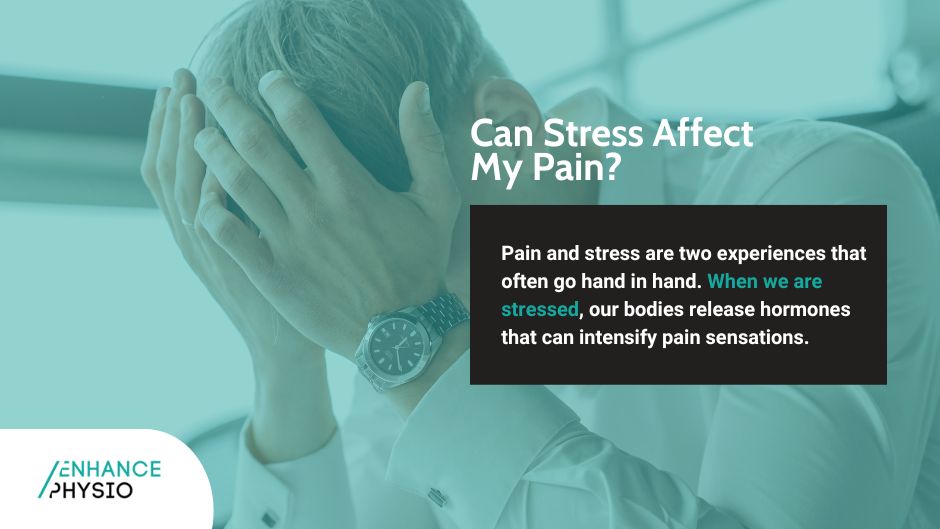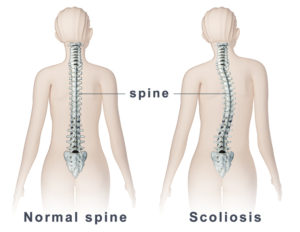Living with chronic pain can be debilitating, affecting every aspect of your life. But have you ever wondered if stress could be making your pain worse?
There appears to be a strong correlation between stress and pain levels, and understanding this connection could hold the key to finding relief.
Pain and stress are two experiences that often go hand in hand. When we are stressed, our bodies release hormones that can intensify pain sensations. Additionally, stress can lead to muscle tension and inflammation, further exacerbating physical discomfort. Many individuals with chronic pain find themselves caught in a vicious cycle, as pain causes stress, and stress can amplify pain.
If you suffer from chronic pain, it is important to recognise the potential impact that stress can have on your symptoms. By acknowledging this connection, you can take steps to manage your stress levels and possibly alleviate some of the pain you experience.
What is pain?
Many of the models used in the past to explain pain lead us to believe that the intensity of pain will always be proportional to the severity of an injury. The experience of pain is always real and usually distressing. However, pain is a warning system used by our nervous system to alert us to danger, not a direct indicator of damage done.
This is a subtle yet important distinction, meaning that the experience of pain can be influenced by many different factors and not exclusively tissue damage.
How stress impacts pain
Part of the role of your nervous system is to sort through a huge amount of sensory input and interpret it in a meaningful way. When pain is considered to be a serious threat to the body, the intensity of the pain will be worse.
This can happen in many situations, for example:
- The source of the pain is not well understood, leading to fear that the pain might be something very serious.
- The nervous system is in a state of hyper-arousal, such as when you are stressed or tired.
- The pain or injury could have a significant impact on your quality of life, career, relationships or hobbies.
- The injury occurred through a traumatic event such as a car accident.
It’s important to note that the relationship between stress and pain is complex and individual. What affects one person might not affect another. However, there’s strong evidence that stress can worsen pain conditions like headaches, migraines, back pain, arthritis, and fibromyalgia.

5 Stress and pain response mechanisms
1. Muscle tension
When you’re stressed, your muscles tend to tense up, which can lead to pain and stiffness, particularly in the neck, back, and shoulders.
2. Inflammation
Chronic stress can elevate your cortisol levels, which can contribute to inflammation throughout the body, potentially worsening existing pain or making you more sensitive to pain.
3. Pain processing
Stress can also alter how your brain interprets and processes pain signals, making you perceive pain as more intense or bothersome.
4. Reduced sleep
Stress can disrupt your sleep patterns, leading to insomnia or poor sleep quality. This can worsen the pain or make it harder to manage.
5. Negative coping mechanisms
In response to stress and pain, some people may engage in unhealthy coping mechanisms like overeating, alcohol consumption, or drug use, which can exacerbate pain in the long run.
Tips for managing stress and reducing its impact on pain
- Practice relaxation techniques: Deep breathing, meditation, yoga, and progressive muscle relaxation can all help to reduce stress and muscle tension.
- Exercise regularly: Physical activity can help improve your mood and reduce stress levels.
- Get enough sleep: Aim for 7-8 hours of sleep each night.
- Eat a healthy diet: Eating a balanced diet can help to improve your overall health and well-being, which can make you more resilient to stress.
- Connect with others: Spending time with loved ones can provide support and help reduce stress.
- Seek professional help: If you’re concerned about how stress might be affecting your pain, it’s important to talk to your doctor. They can help you identify potential stressors and develop strategies for managing both your stress and your pain.
Your physiotherapist is a great person to speak to about pain management strategies so you can get the most out of your life while dealing with long-term pain.

Final thoughts
The connection between stress and pain is undeniable. By understanding this relationship and finding healthy ways to manage and reduce stress, we can proactively improve our physical well-being.
So, take a deep breath, prioritise self-care, and remember that a calmer mind leads to a happier, pain-free body. Let go of stress and embrace a pain-free life today!
Book an appointment with one of our highly qualified physiotherapists at Enhance Physio before starting a rehabilitation program. We can advise you on the best course of action for your condition.





